If you’re old, don’t try to change yourself, change your environment.
B. F. SKINNERWe shouldn’t teach great books; we should teach a love of reading. Knowing the contents of a few works of literature is a trivial achievement. Being inclined to go on reading is a great achievement.
More B. F. Skinner Quotes
-







-





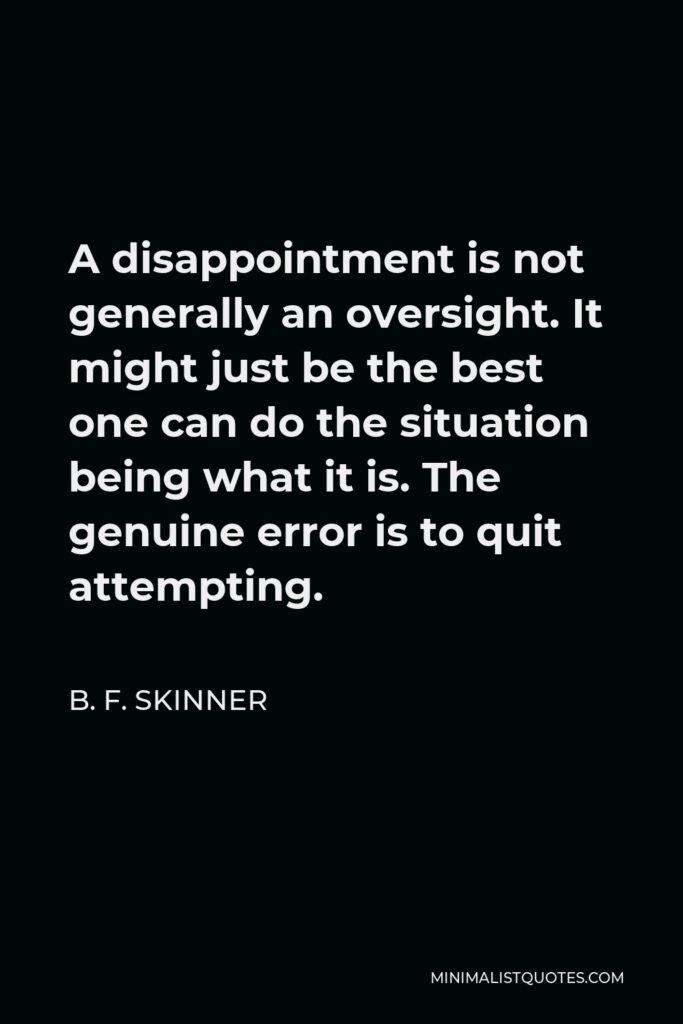

A disappointment is not generally an oversight. It might just be the best one can do the situation being what it is. The genuine error is to quit attempting.
B. F. SKINNER -







It is a mistake to suppose that the whole issue is how to free man. The issue is to improve the way in which he is controlled.
B. F. SKINNER -





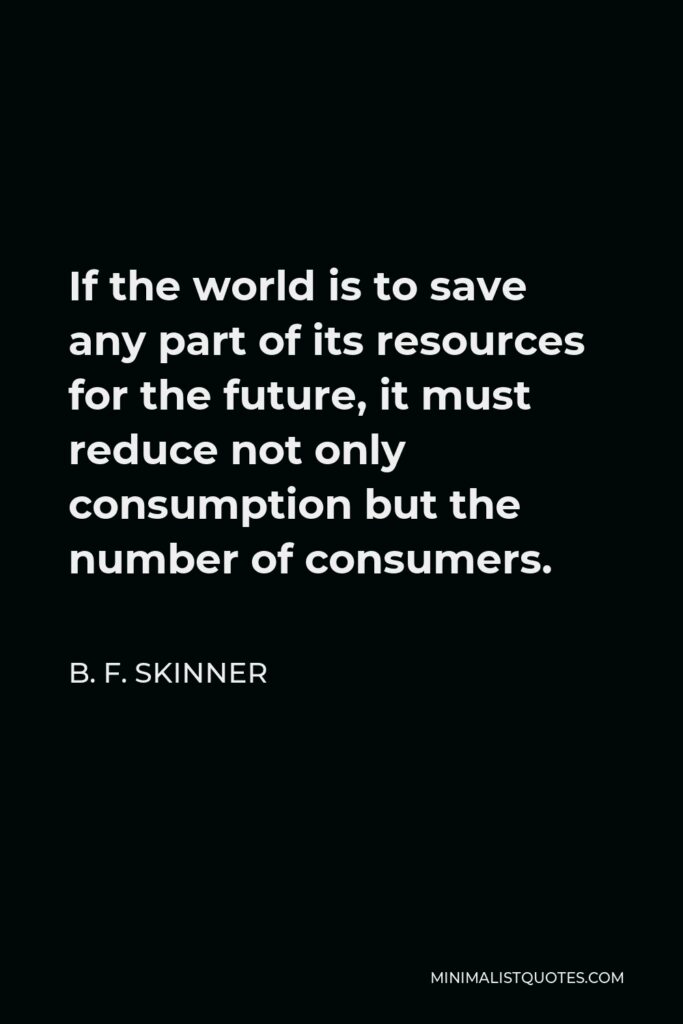

If the world is to save any part of its resources for the future, it must reduce not only consumption but the number of consumers.
B. F. SKINNER -





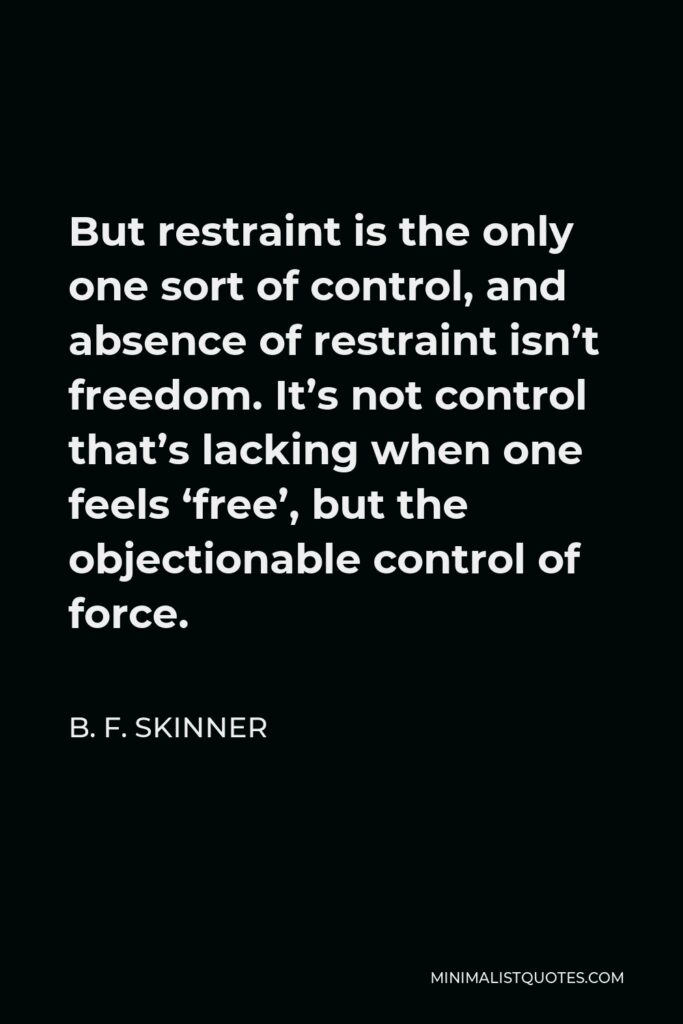

But restraint is the only one sort of control, and absence of restraint isn’t freedom. It’s not control that’s lacking when one feels ‘free’, but the objectionable control of force.
B. F. SKINNER -





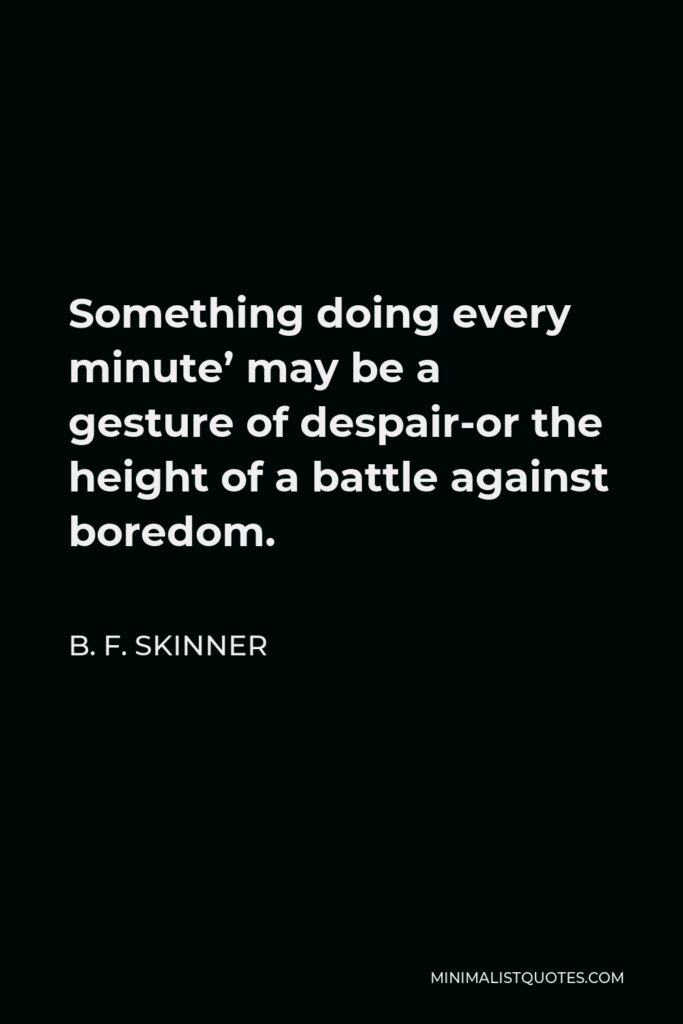

Something doing every minute’ may be a gesture of despair-or the height of a battle against boredom.
B. F. SKINNER -





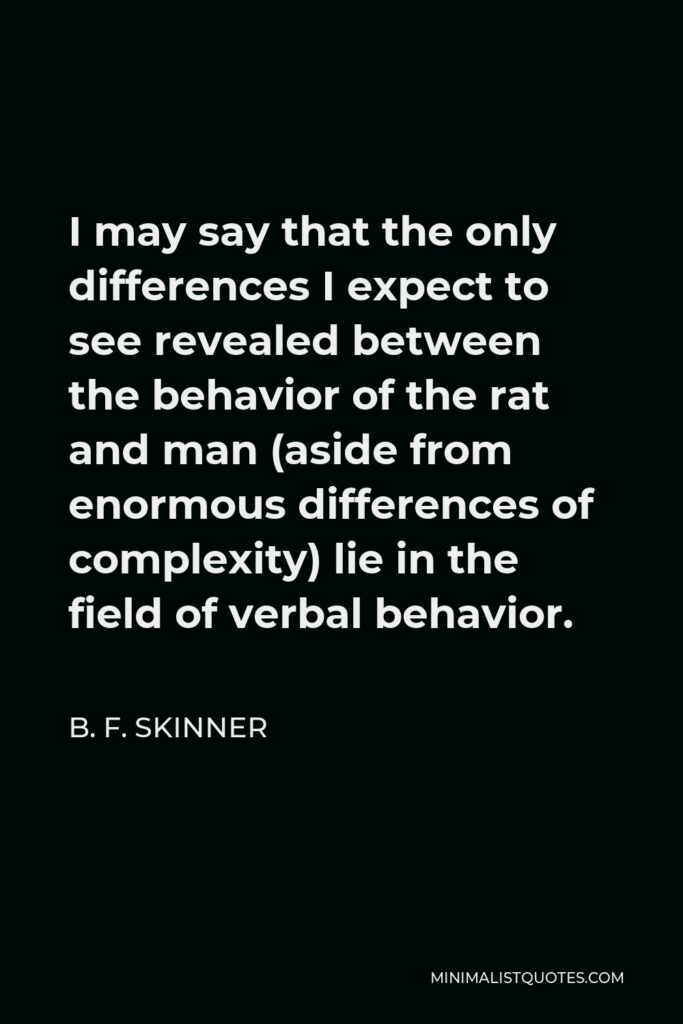

I may say that the only differences I expect to see revealed between the behavior of the rat and man (aside from enormous differences of complexity) lie in the field of verbal behavior.
B. F. SKINNER -







The alphabet was a great invention, which enabled men to store and to learn with little effort what others had learned the hard way-that is, to learn from books rather than from direct, possibly painful, contact with the real world.
B. F. SKINNER -







Does a poet create, originate, initiate the thing called a poem, or is his behavior merely the product of his genetic and environmental histories?
B. F. SKINNER -





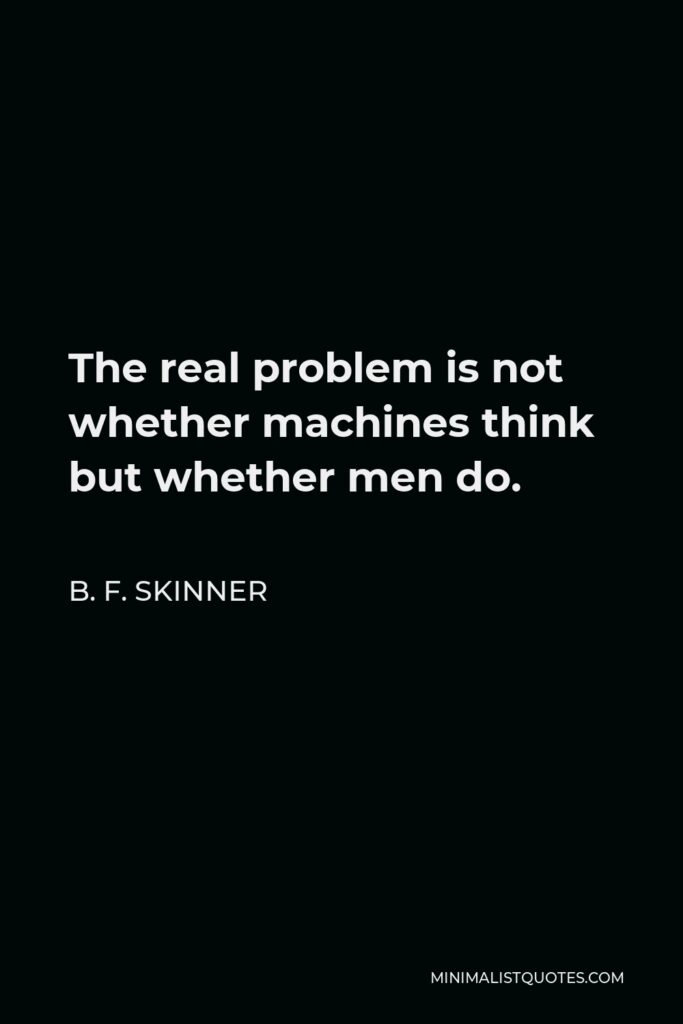

The real problem is not whether machines think but whether men do.
B. F. SKINNER -





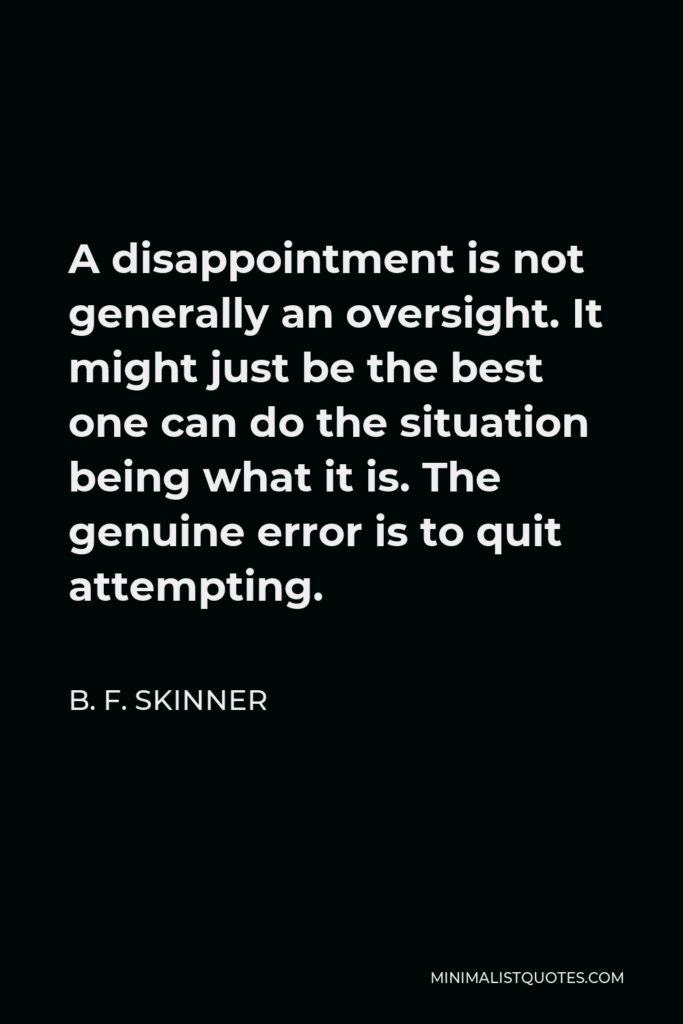

A disappointment is not generally an oversight. It might just be the best one can do the situation being what it is. The genuine error is to quit attempting.
B. F. SKINNER -







The only geniuses produced by the chaos of society are those who do something about it. Chaos breeds geniuses. It offers a man something to be a genius about.
B. F. SKINNER -





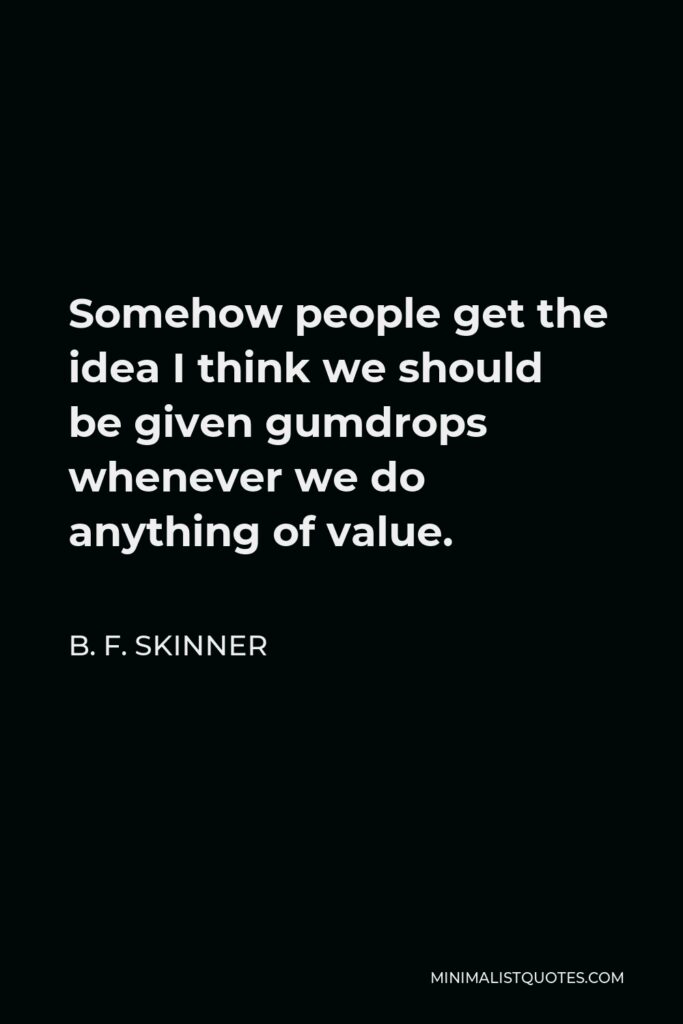

Somehow people get the idea I think we should be given gumdrops whenever we do anything of value.
B. F. SKINNER -







We shouldn’t teach great books; we should teach a love of reading.
B. F. SKINNER -







Problem-solving typically involves the construction of discriminative stimuli
B. F. SKINNER -







When we say that a man controls himself, we must specify who is controlling whom.
B. F. SKINNER








